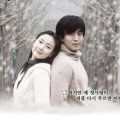Korean Wave Washes Over USA
Millions of Americans follow the romances, feuds and misadventures of the characters on television soap operas. Many of these daytime melodramas have been on the air for decades, and their successful formula has been reproduced in evening prime-time series. Other countries produce these dramas, as well, and South Korean productions have a growing American audience.
Their followers don't get much more passionate than the fans in Hawaii. When South Korean singer and actor Kim Min Jong performed in Honolulu earlier this year, fans went wild, even though many didn't even know what he was crooning about. One young woman called herself 'a blond-haired, blue-eyed Korean fan girl.' "I really love, I love the Korean culture, love the movies to death," she gushed. "I like a lot of the dramas, there's just something about it that just grab me." Another woman in the audience, an African-American, chimed in, "I really enjoy the fact that the Korean dramas are really wholesome, they're a lot more wholesome, in their story lines than the American soap operas." These fans are addicted to Korean television dramas. They say they love the story lines, the good-looking actors, the family values and the music. "Most of the stories are highly emotional," says one. "So you cry a lot, you laugh a lot." Korean dramas also feature plenty of good old-fashioned romance. But unlike American soaps, there's no steamy sex or violence. That's what appeals to Nora Muramoto, 60. "American dramas are too violent," she says, "they were getting too violent and too much sex involved. And after seeing Korean dramas it was so clean." Muramoto is also drawn to the charismatic and sensitive male characters in the dramas. "As a Japanese-American woman married to a typical Japanese samurai guy, whatever he says goes. And he tends to wear the pants [be the authority] in the family. Whereas the Korean soap opera guys, they're more compassionate, caring, they take care of their wives and you know they communicate well." Muramoto has gone to South Korea twice to visit the locations where her favorite Korean dramas were filmed. A few years ago, she founded the Hawaii K-Drama Fan Club, with her friend Gerrie Nakamura, who says the dramas inspire a cultural connection. "When Korean dramas came out," she recalls, "I knew that out there, there were pretty, handsome and Asian, just like me, people, that were able to be heroes, you know, they could be the stars and they could be the hunks." She says she felt connected to that.
Korean dramas have been on the air in Hawaii for more than 20 years, longer than anywhere else in the United States. Jeff Chung, a 38-year-old Korean-American, is general manager of KBFD, which in 1989 became the first station in the world to broadcast the dramas with English subtitles.
His favorite Korean drama is Winter Sonata. "It is the drama that really sparked the whole Korean pop culture and Korean drama craze in the world," he says, adding that it was extremely popular in Japan as well as in Honolulu. Chung says his audience and revenues really grew in 2002 with the broadcast of Winter Sonata. "It's a fairytale love story, about finding your first love, when you thought that person had passed away in an accident. And it's a great story." Unlike the stories on American soap operas, which can continue for years, Korean dramas usually end after 16 or 20 episodes. Theodore Jun Yoo uses the dramas to teach students about Korean culture in his history classes at the University of Hawaii.
The professor's favorite mini-series is Dae Jang Geum or Jewel in the Palace. The historical drama, set in the 16th century, is based on a true story about a poor orphan, who beats the odds to become the king's first female physician. "For those who don't know the Chosun period, it was a very patriarchal society," he explains. "And to see a woman deal with all kinds of tribulations and overcome them, I think is extremely empowering, but also entertaining." TV dramas like Jewel in the Palace are part of what's being called the Korean Wave: dramas, movies and pop music from South Korea that have swept across the Hawaiian Islands and are starting to catch on, on the U.S. mainland. Korean dramas are now being shown on TV stations in major cities including Los Angeles, San Francisco, Chicago and New York.
They've been available on DVD with English subtitles since 2003. The Mountain Apple Company began distributing them more than a year ago, and their sales have grown continuously. Company president, Leah Bernstein says she thinks she knows why. "The story has a beginning, it has an end. It has a point. And people are really gravitating towards it. It makes you feel good." It makes Hollywood feel good, too, good enough to begin producing U.S. versions of more than a dozen Korean films. The first, a remake of the South Korean romantic fantasy Il Mare - also known as Siworae - was released earlier this year as The Lake House.

